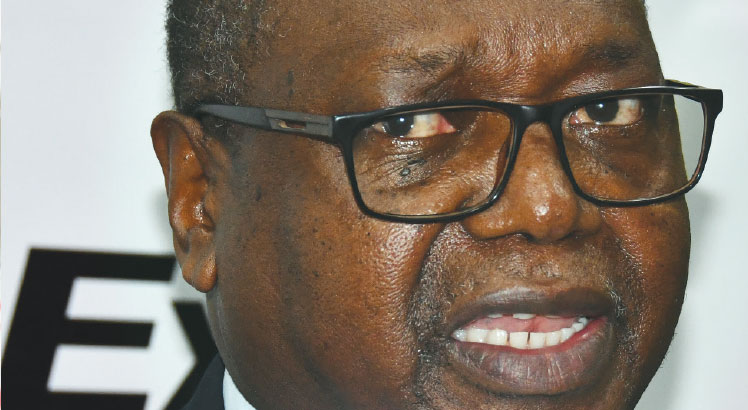RBM moves to boost foreign exchange
The Reserve Bank of Malawi (RBM) has re-introduced the mandatory sale of export proceeds in a bid to ensure foreign exchange availability in the country.
Under the new provision, all exporters are required to sell a minimum of 30 percent of their export proceeds to authorised dealer banks (ADBs) while retaining 70 percent of the proceeds in their foreign currency denominated accounts (FCDAs).
In a statement, RBM governor Wilson Banda said the central bank has noted tightness in the foreign exchange market; hence, re-introducing the mandatory sale of export proceeds to ADBs.
“Exporters are at liberty to sell the foreign exchange to any ADB offering a better exchange rate other than the ADB which received the export proceeds,” he said.

Banda said the transaction should be done within two days from the date of receipt of the proceeds.
He said in view of this, all exporters are immediately required to liquidate 30 percent of what is currently held in their FCDA by selling the foreign exchange to any ADB offering a better exchange rate.
In 1994, RBM introduced an export incentive scheme that allows exporters to retain export proceeds in their FCDAs.
The scheme started with a retention/conversion ratio of 10/90 and has progressively been adjusted downwards until it was abolished in March 2015.
Since the abolishment of the retention/conversion ratio, exporters were allowed to retain 100 percent of export proceeds in their FCDA.
Commenting on the move, economic statistician Alick Nyasulu yesterday said there will be a slight increase in foreign exchange, but was quick to add that it is not enough to fix the current foreign exchange problems.
He said most exporters protect themselves from exchange rate losses by maintaining FCDAs.
Said Nyasulu: “Now they will be put at some disadvantage as they are being compelled to sell their earnings.
“In my view, any trader should be allowed to keep their earnings in a currency of their choice. The current move is a temporary solution and won’t have long-term impact.”
He said the long-term solution relies on expanding the country’s export base instead of punishing the few exporters.
Malawi’s gross official reserves have lately been under pressure as the country’s demand for imports, largely because of the Covid-19, have been rising.
In the last six months ending June, the kwacha lost K38.83 to the dollar as demand for foreign exchange continues to surpass its supply.
On the other hand, the official forex reserves for July 2021 decreased to $404.18 million, an equivalent of 1.62 months of import cover from $424.99 million, equivalent to 1.70 months of import cover in June 2021.





